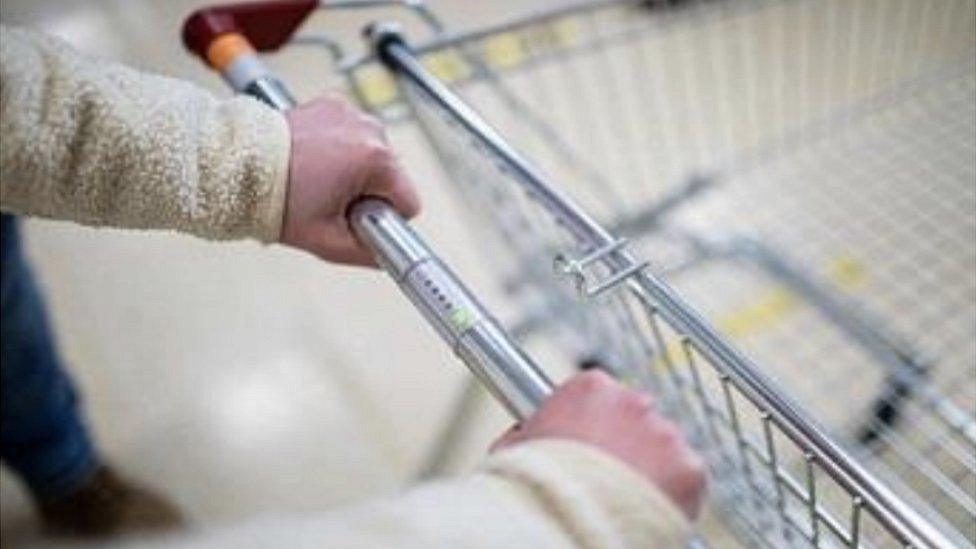Supermarket trolleys reveal heart problems in shoppers
- Published

Supermarket trolleys with a special sensor fitted to the handles can help spot a hidden heart-rhythm condition that increases the risk of stroke, a trial has found.
Researchers in Liverpool asked local stores to stock the modified trolleys, which scan customers' grip pulses for any irregularities while they shop.
More than 2,000 shoppers used them.
During the two months of the study, 39 people were newly identified as having atrial fibrillation (AF).
They were referred on to see a heart doctor for advice.
Lead researcher Prof Ian Jones, from Liverpool John Moores University, said: "This study shows the potential of taking health checks to the masses without disrupting daily routines.
"Nearly two-thirds of the shoppers we approached were happy to use a trolley and the vast majority of those who declined were in a rush rather than wary of being monitored.
"This shows that the concept is acceptable to most people and worth testing in a larger study."
What is AF and is it dangerous?
AF is when the heart beats irregularly or chaotically so the heart muscle cannot relax properly between contractions
People with AF might notice an irregular and fast pulse or heart palpitations
Some have no symptoms though and it is only picked up during a check-up
AF can increase the risk of blood clots in the heart that may lead to stroke
AF is thought to affect more than a million people in the UK and 40 million globally.
Anti-clotting medication for the blood may be recommended to lower the risk of possible complications, such as stroke.
The trial findings are being presented at a European Society of Cardiology conference, external, in Edinburgh.
The study received funding from Bristol Myers Squibb, which makes treatments for AF.
Ten trolleys with a sensor in the handle - similar to those on gym exercise machines - were placed across four supermarkets with pharmacies.

Shoppers were asked to hold the handle for a minute.
If an irregular heartbeat was detected, the in-store pharmacist manually checked their pulse and they had an electrocardiogram (ECG) heart trace taken that was then reviewed by a cardiologist.
Of these 220:
115 showed no evidence of AF
59 were found to have AF, 39 undiagnosed
46 had readings that were unclear
If no irregular heartbeat was detected, a researcher manually checked their pulse - and of these, 10 were found to have AF.
- Published10 March 2023

- Published16 April 2021
